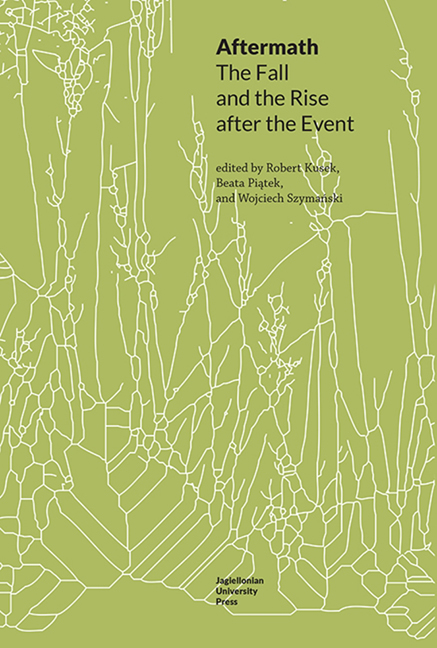Life Out of Balance and Its Aftermath. Paradoxes in Arundhati Roy’s The Ministry of Utmost Happiness: A Material Ecocritical Reading
Published online by Cambridge University Press: 06 November 2021
Summary
The Hopi word koyaanisqatsi, meaning life out of balance, is the title of the film by Godfrey Reggio (1982). Having no characters and no dialogue, the film juxtaposes music by Philip Glass and slow-motion images of city life and natural locations which, when combined, manage to portray the tense relationship between humans and the environment. Koyaanisqatsi condenses what Arundhati Roy seems to transmit in her second novel The Ministry of Utmost Happiness (2017). In a way similar to Reggio’s, Roy builds her novel as a combination of voices, languages (some poems are written in Urdu), literary registers, or even political statements to portray an unbalanced universe derived from multiple divisions affecting not only the physical and the national body, but also our position as beings in a global world. In this sense, and although The Ministry of Utmost Happiness has usually been interpreted as a novel about India, we agree with Paul Jay in his consideration of Roy as an author whose texts, although alluding “in some way to the legacy of colonialism, they pay more attention to the contemporary effects of globalization than they do to the imperatives of postcolonial state making and the construction of specifically postcolonial identities and subjectivities” (Jay 2010: 95‒96). In other words, while it is true that the novel addresses problems such as the rise of Hindu fundamentalism in India or the violation of human rights in Kashmir by the Indian government, the author's concerns also delve into questions that cannot be contained by the spatial margins of the nation, such as human rights or environmentalism.
As a matter of fact, Arundhati Roy has become an environmentalist leader in her country and is well known for her activism against the building of dams, her anti-globalisation stance and her support of the Kashmiri separatist movement. Consequently, Roy's concern with environmentalism in this work is made evident from the very beginning. The novel opens with a preface which makes direct reference to the disappearance, owing to diclofenac poisoning, of vultures and sparrows in New Delhi. This substance, given to cattle as a muscle relaxant to increase milk production, works as “nerve gas” (Roy 2017) on these birds which “for more than a hundred million years” (ibid.) have fed on the carcasses of dead cows or buffaloes.
- Type
- Chapter
- Information
- AftermathThe Fall and the Rise after the Event, pp. 249 - 260Publisher: Jagiellonian University PressPrint publication year: 2022



